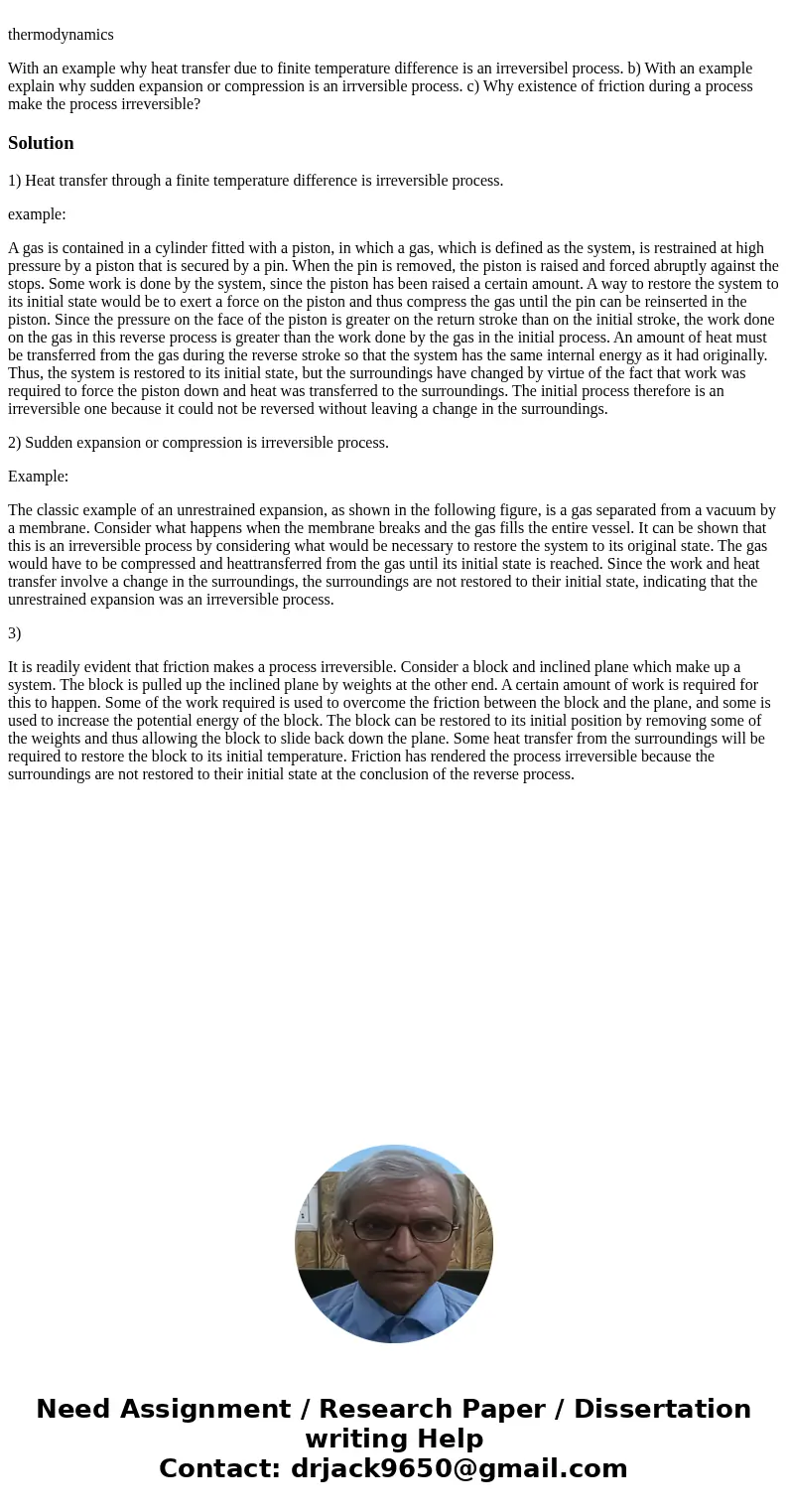thermodynamics With an example why heat transfer due to fini
thermodynamics
Solution
1) Heat transfer through a finite temperature difference is irreversible process.
example:
A gas is contained in a cylinder fitted with a piston, in which a gas, which is defined as the system, is restrained at high pressure by a piston that is secured by a pin. When the pin is removed, the piston is raised and forced abruptly against the stops. Some work is done by the system, since the piston has been raised a certain amount. A way to restore the system to its initial state would be to exert a force on the piston and thus compress the gas until the pin can be reinserted in the piston. Since the pressure on the face of the piston is greater on the return stroke than on the initial stroke, the work done on the gas in this reverse process is greater than the work done by the gas in the initial process. An amount of heat must be transferred from the gas during the reverse stroke so that the system has the same internal energy as it had originally. Thus, the system is restored to its initial state, but the surroundings have changed by virtue of the fact that work was required to force the piston down and heat was transferred to the surroundings. The initial process therefore is an irreversible one because it could not be reversed without leaving a change in the surroundings.
2) Sudden expansion or compression is irreversible process.
Example:
The classic example of an unrestrained expansion, as shown in the following figure, is a gas separated from a vacuum by a membrane. Consider what happens when the membrane breaks and the gas fills the entire vessel. It can be shown that this is an irreversible process by considering what would be necessary to restore the system to its original state. The gas would have to be compressed and heattransferred from the gas until its initial state is reached. Since the work and heat transfer involve a change in the surroundings, the surroundings are not restored to their initial state, indicating that the unrestrained expansion was an irreversible process.
3)
It is readily evident that friction makes a process irreversible. Consider a block and inclined plane which make up a system. The block is pulled up the inclined plane by weights at the other end. A certain amount of work is required for this to happen. Some of the work required is used to overcome the friction between the block and the plane, and some is used to increase the potential energy of the block. The block can be restored to its initial position by removing some of the weights and thus allowing the block to slide back down the plane. Some heat transfer from the surroundings will be required to restore the block to its initial temperature. Friction has rendered the process irreversible because the surroundings are not restored to their initial state at the conclusion of the reverse process.

 Homework Sourse
Homework Sourse